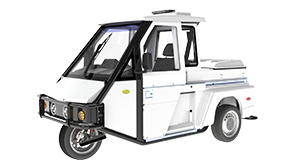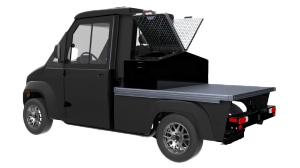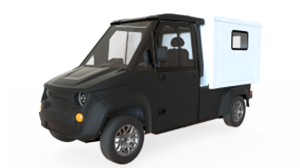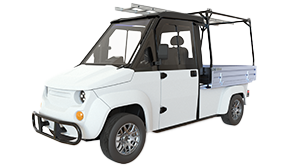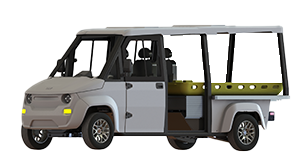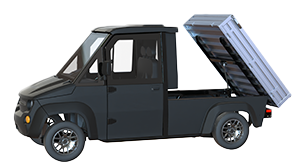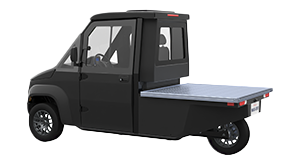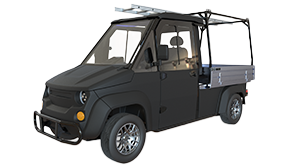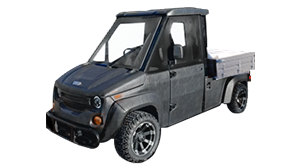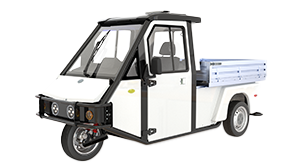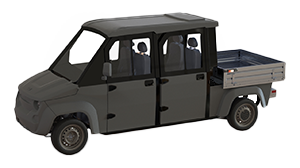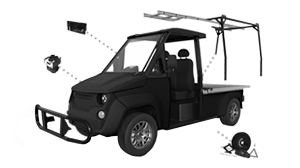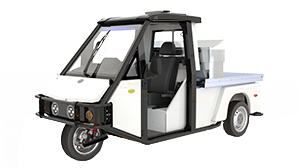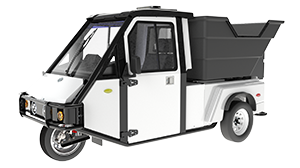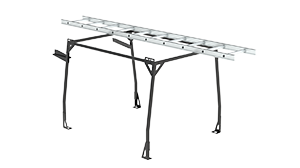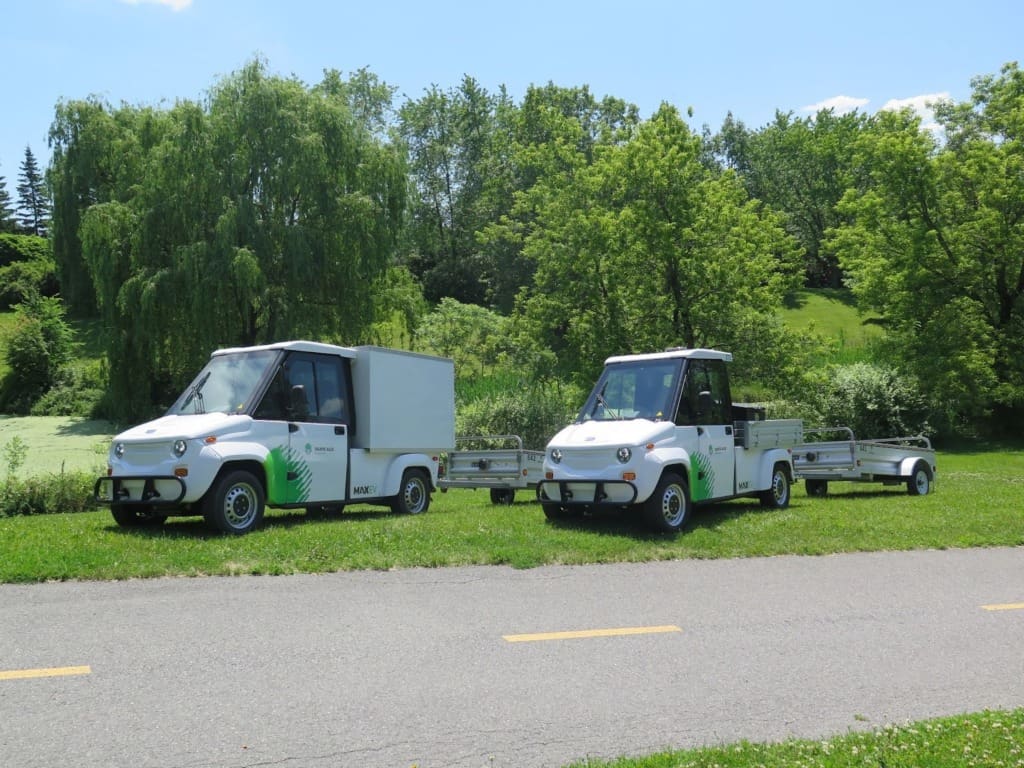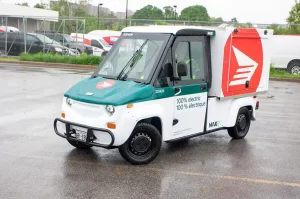The Max-EV by Westward Vehicles is transforming fleet management with its robust lithium-ion power, offering up to 2000 charge cycles and significantly reduced maintenance costs. With new innovations on the horizon, Westward is working to increase charge cycles well beyond the current capacity. The current Lithium-Ion used now is NMC (Nickel Manganese Cobalt), which is a game-changer for smaller-sized vehicles like the Max, due to its efficiency and low maintenance requirements.
The Power of NMC Lithium-Ion Batteries
NMC lithium-ion batteries are at the core of the Max-EV’s impressive performance. These batteries offer several key advantages:
- High Energy Density: NMC batteries have a high energy density, allowing the Max-EV to store more energy in a compact space. This makes them ideal for smaller vehicles where space and weight are critical considerations.
- Long Cycle Life: With the ability to endure up to 2000 charge cycles, NMC batteries ensure that the Max-EV can be used extensively over several years without significant degradation in performance.
- Low Maintenance: Unlike older battery technologies like lead-acid, NMC lithium-ion batteries require minimal maintenance. This translates to lower operational costs and less downtime for fleet managers.
- Safety and Stability: NMC batteries are proven in mass production to be stable and safe, reducing the risk of overheating and ensuring reliable performance under various operating conditions. The on-board battery management system safely and actively regulates all factors of battery conditions.
Efficiency and Environmental Benefits
The Max-EV’s transition to NMC lithium-ion batteries brings substantial efficiency and environmental benefits:
- Reduced Carbon Footprint: Electric vehicles inherently produce zero tailpipe emissions, and the high efficiency of NMC batteries further minimizes the environmental impact. Fleet managers can reduce their carbon footprint and contribute to a greener future.
- Energy Regeneration: The Max-EV is equipped with regenerative braking technology that captures energy during braking and stores it in the battery. This not only extends the vehicle’s range but also enhances overall energy efficiency.
- Cost-Effective Operation: Lower fuel and maintenance costs make the Max-EV a cost-effective choice for fleet management. The extended lifespan of NMC batteries means fewer replacements and lower total cost of ownership.
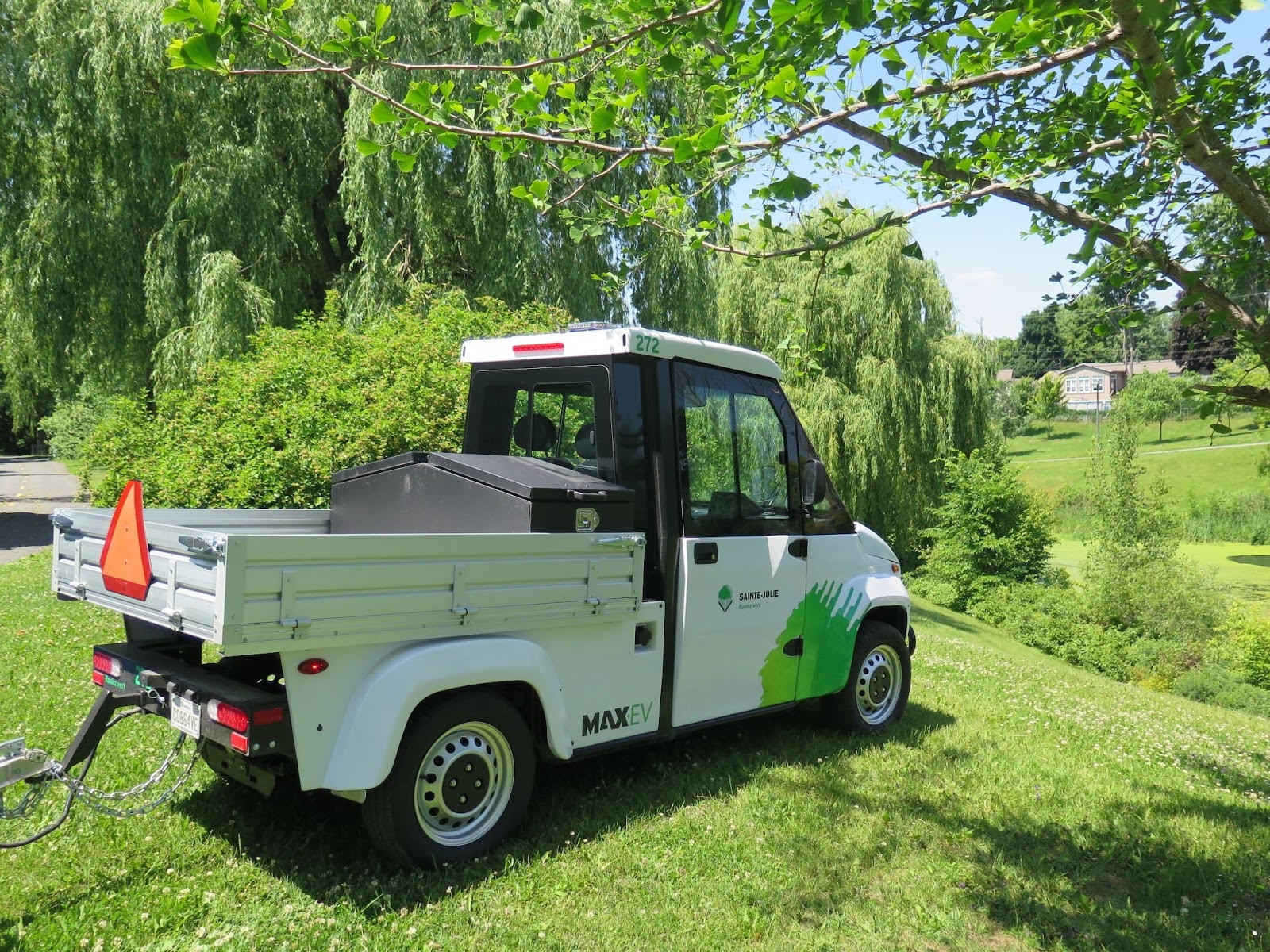
Industrial Applications
The Max-EV is a versatile vehicle designed to meet the needs of various industrial applications. Its robust performance and low maintenance make it an ideal choice for several sectors:
- Maintenance and Landscaping: The compact size and maneuverability of the Max-EV make it perfect for maintenance and landscaping tasks. Whether it’s transporting tools and equipment or navigating tight spaces, the Max-EV delivers reliable performance.
- Cargo Delivery: For short-range cargo delivery, the Max-EV offers a cost-effective and environmentally friendly solution. Its efficient power usage and substantial cargo capacity ensure timely deliveries with minimal operational costs.
- Parking Enforcement: The Max-EV’s quiet operation and low emissions make it suitable for urban environments, where it can be used for parking enforcement and other municipal tasks without contributing to noise pollution.
Future Innovations
Westward Vehicles is committed to continuous innovation, working on advancements that will further enhance the performance and longevity of the Max-EV’s lithium-ion batteries. Research and development efforts are focused on increasing charge cycles, improving energy density, and reducing costs, ensuring that the Max-EV remains at the forefront of electric vehicle technology.
- Extended Battery Life: Ongoing research aims to push the boundaries of NMC battery technology, potentially increasing charge cycles well beyond the current 2000 cycles. This will extend the operational lifespan of the Max-EV, offering even greater value to fleet managers.
- Enhanced Energy Density: By improving the energy density of NMC batteries, Westward Vehicles seeks to provide even more power in a compact form, enhancing the performance and range of the Max-EV.
- Cost Reduction: Innovations in battery manufacturing and materials are expected to lower the cost of NMC batteries, making the Max-EV an even more attractive option for fleet management.
- Solid State Batteries: The industry is eagerly anticipating the breakthrough of solid-state batteries. As this technology becomes a legitimate mass market offering, it promises to significantly improve range and life cycle, driving further advancements in electric vehicle performance.
Case Studies and Real-World Impact
Several real-world case studies highlight the impact of the Max-EV in various industries:
- Livent Corporation: Livent Corporation integrated the Max-EV into their corporate yard operations, utilizing its compact size and robust performance for efficient transport of equipment and supplies. The vehicle’s low maintenance requirements and operational efficiency have resulted in significant cost savings.
- City of Fresno: The City of Fresno has adopted the Max-EV for their parking enforcement fleet. The Max-EV’s maneuverability and low operating costs have greatly improved the efficiency of their parking enforcement tasks, allowing the city to better allocate resources.
- City of Montreal: The City of Montreal integrated the Max-EV into their utility fleet. Its versatility and durability make it ideal for a range of public works and utility tasks, and the eco-friendly electric powertrain aligns with the city’s sustainability goals.
- FedEx Airports: FedEx has incorporated the Max-EV into their airport cargo operations. The vehicle’s reliability and performance in transporting goods across airport grounds have streamlined their logistics processes, enhancing overall operational efficiency and reducing costs.
The Max-EV by Westward Vehicles is revolutionizing fleet management with its advanced NMC lithium-ion battery technology. Offering up to 2000 charge cycles, reduced maintenance costs, and significant efficiency gains, the Max-EV is a cost-effective and environmentally friendly choice for various industrial applications. As Westward Vehicles continues to innovate, the future looks bright for the Max-EV and its role in sustainable transportation.
Fleet managers looking to enhance their operations with reliable, efficient, and eco-friendly vehicles need look no further than the Max-EV. With its impressive performance and low total cost of ownership, the Max-EV is set to lead the way in the next generation of fleet management solutions.
FAQs
What type of battery does the Max-EV use?
The Max-EV uses NMC (Nickel Manganese Cobalt) lithium-ion batteries, which offer high energy density, long cycle life, low maintenance, and stable, safe performance. These batteries are ideal for smaller vehicles like the Max-EV due to their efficiency and reliability.
What are the key benefits of NMC lithium-ion batteries in the Max-EV?
NMC lithium-ion batteries provide up to 2000 charge cycles, significantly reducing maintenance costs. They offer high energy density, enabling the Max-EV to store more energy in a compact space. Additionally, the batteries are stable and safe, reducing the risk of overheating.
How does the Max-EV contribute to environmental sustainability?
The Max-EV produces zero tailpipe emissions, helping to reduce the carbon footprint of fleet operations. Its regenerative braking technology captures energy during braking and stores it in the battery, extending the vehicle’s range and enhancing overall energy efficiency.
What types of applications are suitable for the Max-EV?
The Max-EV is versatile and suitable for various industrial applications, including maintenance and landscaping, short-range cargo delivery, and parking enforcement. Its compact size and efficient power usage make it ideal for navigating tight spaces and urban environments.
What future innovations can we expect for the Max-EV?
Westward Vehicles is focused on continuous innovation, including enhancing battery life, improving energy density, and reducing costs. The industry is also eagerly anticipating solid-state batteries, which promise to significantly improve the range and life cycle of electric vehicles like the Max-EV.
